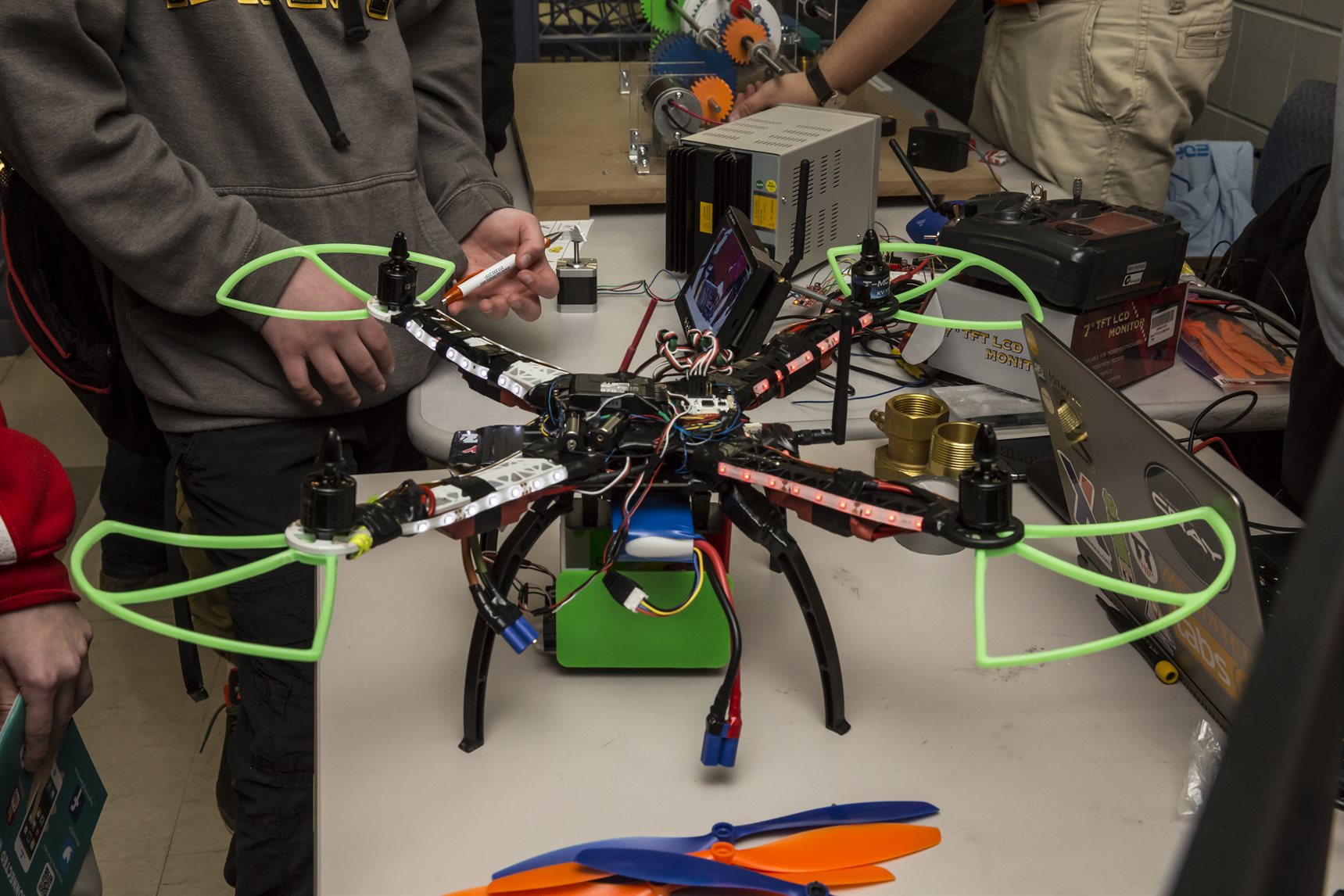Grainger Safety
Winter Weather Safety
Are you conducting your research/work operations outdoors, or would you just like more information on cold stress and winter preparedness?
Check out DRS' resource on cold stress and Illinois' Winter Weather Preparedness Guide to learn about the appropriate prevention measures and the health risks associated with cold stress during these winter months.
Additional Resources:
Dressing for Winter - NOAA
Winter Storm Terms - ReadyIllinois
Winter Weather Preparedness - Ready.gov
Safety Resources for Instructors, TAs, and Proctors
Safety Resources for Instructors, TAs, and Proctors can aid instructional staff prepare and understand how to respond to an incident requiring immediate assistance.
Additional Resources:
Run Hide Fight Resources for Instructors - UIPD Emergency Management
Graduate Student Wellness - The Graduate College
Faculty & Staff Wellness - Student Affairs

DRS Drone Safety Training (New!)
The Division of Research Safety (DRS) has published a DRS Drone Safety Training to help students, researchers, and staff who work with drones be compliant with the Federal Aviation Administration (FAA) and provides resources to safely operate a drone at the University of Illinois Urbana-Champaign.
Additional Resources:
Drones and other Unmanned Aerial Systems - GCoE Office of Safety
Aerial Activities Over, On, or In Campus Property - Campus Administrative Manual
Safety Policy Statement
The Grainger College of Engineering (GCOE) is dedicated to protecting the environment, health and safety for all those who work or visit the college, and our community.
GCOE pledges to:
- Create a safe and healthy workplace.
- Maintain respect for the environment.
- Respect and adhere to all applicable laws, regulations, and university environmental, health and safety requirements.
GCOE supports and follows the edicts expounded in the Campus Administrative Manual’s Environmental Health and Safety directive, which includes the responsibility for safety at each level of the organization – dean/director/head, principal investigator/investigator/supervisor and student/employee/visitor.
To help us meet our safety responsibilities, I have charged the GCOE Office of Safety to act as a resource for research and occupational safety and to liaise with university safety and security resources and external regulatory bodies, as appropriate.
By working together with a shared goal of safety and security, we can achieve a safe and healthy work environment for all those who work, study and visit The Grainger College of Engineering.
Rashid Bashir, Dean
Help yourself stay healthy while working
You spend a lot of time during the day working, so here are a few simple tips to help keep you comfortable and focused:
• Set up your office or work area for optimal posture and ergonomic comfort.
• Schedule regular breaks to stretch and move.
• Computer users can help prevent eye strain by frequently looking at something 20 feet away for 20 seconds.
• Keep a work-life balance.
• Stick to a daily routine.
• Eat a healthy balanced diet.
• Stay hydrated with plenty of water.
• Reduce stress by practicing mindfulness.
• Maintain personal connections.
For more information check out some of our university resources below:
Ergonomics
Work-life Balance
Mental Health & Wellness
Well-being